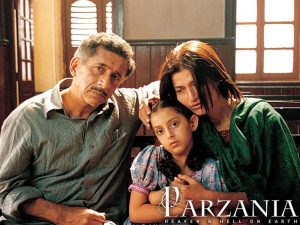The first day of our program, after going through the history and the theories of conflict resolution, we watched the movie, Parzania. The movie is about the Muslim Hindu conflict in Gujrat inspired by a true story. It was especially difficult to sit and watch through for me because when it comes to a conflict I always see how individuals experience a conflict. In the conflict between Muslims and Hindus, there are many stories where families lost their loved ones, but what I really admired about the movie was that it had followed the story of one family through this conflict. Hindu Muslim conflict has been around for a long time in Gujrat, but how this prolonged conflict affects individuals and families is often times ignored. The mother in the movies says: “ I and my husband can’t communicate anymore, my daughter will never forget what she has witnessed and for the rest of her life she will fight the demons she has witnessed.”

This is so true. Conflicts have all become numbers, but we must not forget that all these numbers are human beings who each experience these incidents in different ways and it influences how they view the world around them forever.
Having said that, watching this movie and the discussion afterward was a great way to start out peacebuilding program. For me, it was a reminder that in all the conflicts around the world today, there are individual human beings who are being affected and it will take them a lifetime to come in terms with what they have witnessed. It will take them a lifetime to recover and transition into a normal life, or at times they might never be able to go back to their normal lives.
 I find this very interesting and as an aspiring development practitioner,
I find this very interesting and as an aspiring development practitioner, 
